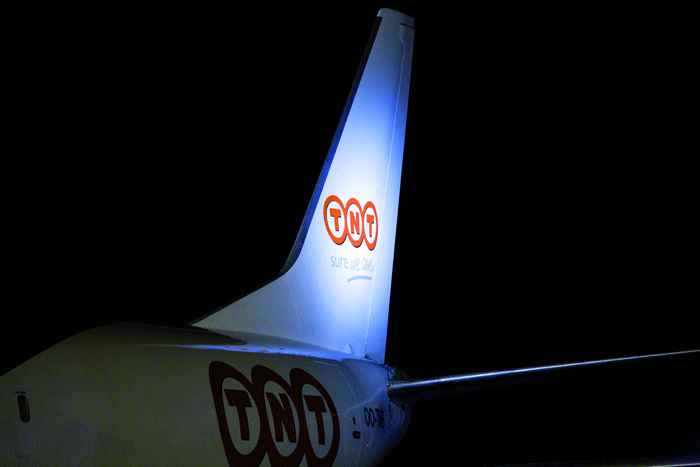Dynamite
TNT India

As demand across the world
zooms and air cargo finds itself in a prime position, the Indian government
planners have been focusing on enhancing the infrastructure to ensure
better facilities. The view is that proper infrastructure can bring in
huge savings in services as well as deliveries. As a result, there is
now talk of modern cargo handling facilities at airports and dedicated
rail freight corridors. Since building infrastructure cannot be done in
a hurry, the planners are seriously considering how to overcome the challenges
that face the sector.
 It
is not only planners – perhaps, those who are more troubled are
the regular users. When Air Cargo News FlyingTypers asked Abhik
Mitra, Managing Director, TNT (India), how he was tackling the bad quality
of infrastructure, he was candid enough to say, “Yes obviously,
we as a company can’t do anything independently regarding infrastructure.
I would also say that in last three-four years, the infrastructure certainly
on the Golden Quadrilateral (the 5,846 kilometre-long highway network
connecting the metropolises of Delhi, Mumbai, Kolkata and Chennai) and
many of the other roads that emanate from that have improved. Average
truck speeds have improved in our industry from what they were. The problem
comes when the highways reach the cities and the bottlenecks there. It
is something that we have to live with and adapt to while we continue
to do our business. There is nothing much that we can do about them.” It
is not only planners – perhaps, those who are more troubled are
the regular users. When Air Cargo News FlyingTypers asked Abhik
Mitra, Managing Director, TNT (India), how he was tackling the bad quality
of infrastructure, he was candid enough to say, “Yes obviously,
we as a company can’t do anything independently regarding infrastructure.
I would also say that in last three-four years, the infrastructure certainly
on the Golden Quadrilateral (the 5,846 kilometre-long highway network
connecting the metropolises of Delhi, Mumbai, Kolkata and Chennai) and
many of the other roads that emanate from that have improved. Average
truck speeds have improved in our industry from what they were. The problem
comes when the highways reach the cities and the bottlenecks there. It
is something that we have to live with and adapt to while we continue
to do our business. There is nothing much that we can do about them.”
Across the express and freight forwarding
industry, logistics costs are often as high as 13-14 per cent of the GDP
compared to the seven-eight per cent in U.S. and Europe. The urgent need,
according to a recent seminar on Logistics Infrastructure, is to build
infrastructure and connectivity through roads, dedicated freight corridors
and airports with extensive and modern cargo handling facilities. The
lack of these basic facilities, said Mitra, hampers the quality of service
to consumers. “That happens and then we take collective action.”
Indeed, as he ruefully stated, “It is not a good situation to be
in.”
Even so, TNT is optimistic about business
in India. This, despite the fact that multinationals like FedEx and DHL
(through Blue Dart), have started serving the domestic market. TNT, in
fact, is not too worried about the competition. Unlike most other international
express integrators, TNT, by Mitra’s reckoning did quite well last
year: “2009 was the end of a very good year for us. We grew our
international business and we also grew the domestic business both in
the service logistics space and expanded our network.”
Pointing to the carefully charted out strategy
that the Netherlands-headquartered TNT adopted in India way back in 2006,
Mitra said the aim was to make TNT the leading integrated player in the
Indian market by 2010. TNT had announced at that time its expansion plans
that were in line with the global strategy of focusing on building quality
networks in emerging markets. According to that plan, TNT had decided
to make an investment of around Euros 100 mn in the Indian market over
the next five years. The launch of the domestic foray made TNT the first
multinational brand in India to offer international and domestic services
using an integrated air and road network.
Mitra emphasized that the good showing happened
because “we had one integrated organization doing both international
and domestic services,” taking care of customers’ requirements
in one move, “rather than one company doing international, another
company doing domestic”.
Surely he must have felt constrained without
freighter connectivity within the country. Indeed, he said, TNT would
have liked to have freighters. However, “freighters come with a
certain amount of scale…” As of today, TNT does not have that
kind of market and when “we choose to play the domestic air freight
game we will have to get freighters.” The top priority, he said,
is to get the ground business – service and quality -- to the next
level and help connect India and Europe.
Tirthankar Ghosh |



